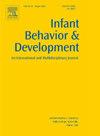低收入家庭儿童早睡习惯与行为结果:情绪调节的中介作用
IF 1.9
3区 心理学
Q3 PSYCHOLOGY, DEVELOPMENTAL
引用次数: 0
摘要
建立早睡习惯对孩子的情绪和行为结果至关重要。然而,对低收入家庭学龄儿童通过早睡和情绪调节预测行为结果的纵向影响和机制知之甚少。因此,本研究在低收入家庭的不同种族学龄儿童中,考察了三岁时的情绪调节作为早就寝习惯和行为结果之间纵向联系的潜在中介。参与者包括参加早期开端研究和评估项目(EHSRE)的家庭子样本(n = 2977)。采用结构方程模型和自举技术对模型进行检验。早睡指数是根据父母在14、24和36个月时的报告创建的。儿童的情绪调节能力是在36个月大时从采访者的评估中得出的,而问题行为是在孩子大约10岁时由母亲报告的。结果表明,坚持早睡的孩子在三岁时能更好地调节自己的情绪。此外,三岁时的情绪调节调节了14-36 个月时的早睡习惯与五年级儿童内化和外化行为之间的联系。研究结果表明,持续的早睡习惯有助于孩子调节他们的新情绪,这反过来对他们的情绪和行为结果有长期的好处。这些发现对儿科医生、护士从业人员、护士和幼儿教育工作者具有重要意义,他们可以提供教育和资源,以支持家庭为幼儿建立一致的就寝时间。本文章由计算机程序翻译,如有差异,请以英文原文为准。
Early bedtime routines and behavioral outcomes among children from low-income families: Mediating role of emotion regulation
The establishment of early bedtime routine is essential for children’s emotion and behavioral outcomes. Less is known, however, about the longitudinal effects and mechanisms predicting behavioral outcomes through early bedtime routine and emotion regulation in school-age children from low-income families. Thus, the present study examined emotion regulation at age three as a potential mediator in the longitudinal links between early bedtime routine and behavioral outcomes among racially diverse school age children from low-income families. Participants include a subsample of families (n = 2977) participating in the Early Head Start Research and Evaluation Project (EHSRE). Structural equation modeling with bootstrapping techniques was used to examine the models. The early bedtime routine index was created from parents’ reports at 14, 24, and 36 months. Children’s emotion regulation was drawn from interviewer assessments at 36 months and problem behaviors were reported by mothers when the child was approximately at age 10. Results indicated that children with consistent early bedtime routine were better able to regulate their emotions at age three. Also, emotion regulation at age three mediated the associations between early bedtime routine at 14–36 months and internalizing and externalizing behaviors among fifth-grade children. Findings indicated that consistent early bedtime routine helps children to regulate their emerging emotions which in turn has long-term benefits on their emotional and behavioral outcomes. These findings have important implications for pediatricians, nurse practitioners, nurses, and early childhood educators who can provide education and resources to support families in establishing consistent bedtime routine for their young children.
求助全文
通过发布文献求助,成功后即可免费获取论文全文。
去求助
来源期刊

Infant Behavior & Development
PSYCHOLOGY, DEVELOPMENTAL-
CiteScore
4.10
自引率
4.80%
发文量
94
期刊介绍:
Infant Behavior & Development publishes empirical (fundamental and clinical), theoretical, methodological and review papers. Brief reports dealing with behavioral development during infancy (up to 3 years) will also be considered. Papers of an inter- and multidisciplinary nature, for example neuroscience, non-linear dynamics and modelling approaches, are particularly encouraged. Areas covered by the journal include cognitive development, emotional development, perception, perception-action coupling, motor development and socialisation.
 求助内容:
求助内容: 应助结果提醒方式:
应助结果提醒方式:


